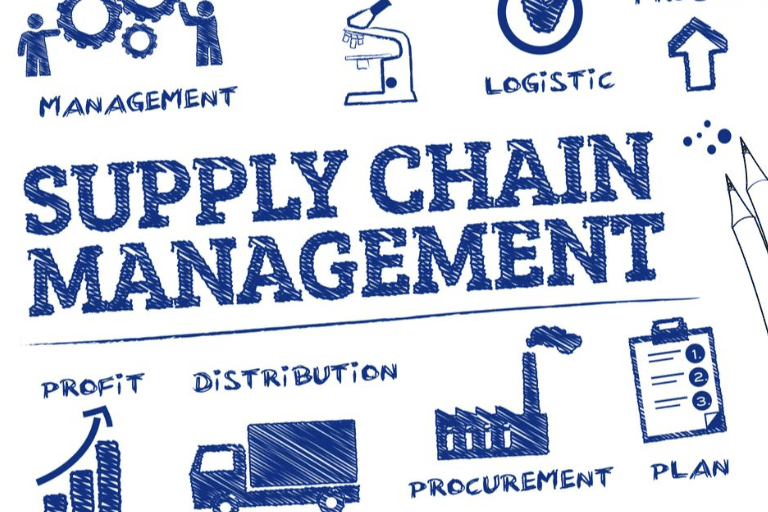Supply Chain Management (SCM) is the lifeblood of any business, affecting every facet from procurement to production to distribution.
However, it can be fraught with complexities such as delays, wastage, and inefficiencies. Enter Artificial Intelligence (AI) A technological innovation that promises to revitalize traditional supply chains. This blog post will explore how AI is redefining the landscape of supply chain management.
The Conventional Supply Chain
Traditional supply chain models are primarily reactive, responding to market changes and disruptions rather than anticipating them. Let’s delve into the limitations that often plague these models.
Limitations
Manual Processes: Much of the data sorting and analysis is manual, making it prone to errors.
Inefficiency: Lack of real-time data can lead to overstocking, under-stocking, or delayed shipments.
Limited Visibility: There’s often a lack of transparency in supply chain processes, hindering effective decision-making.
These shortcomings present an ideal scenario for the implementation of AI technologies.
How AI Enhances Supply Chain Management
Artificial Intelligence enhances supply chain management by introducing automation, real-time analytics, and predictive capabilities into the supply chain. AI has the potential to revolutionize logistics by streamlining processes and improving efficiency. A study from Accenture found that implementing AI in logistics could save companies as much as $235 billion per year. Here are four ways AI can help streamline logistics:
Real-Time Tracking and Analytics
With real-time data streaming, businesses can access information about their operations in real time — no matter where they are located or what type of device they’re using. This allows for quick responses to changes in the environment, improved accuracy when making decisions, and faster delivery times overall.
Predictive Maintenance
AI can help predict demand and supply trends, which can help optimize inventory levels and make better predictions about future needs. This can save companies time and money by anticipating shortages before they happen, or by ordering more supplies when they’re needed most.
Inventory Optimization
AI can analyse past and current data to predict future demand, thus helping to maintain optimal inventory levels.
Enhanced Customer Service
By providing enhanced customer service, AI can help to alleviate pressure on frontline staff and improve communication between different parts of the logistics chain. This can lead to improved satisfaction rates for customers, which in turn will improve business performance overall.
Collaborative planning
By working together with other departments within a company, AI can help create detailed plans for production and delivery. This allows for better coordination between different teams, leading to faster execution and fewer errors along the way.
Types of AI Technologies in Supply Chain Management
AI isn’t a one-size-fits-all solution; it encompasses a range of technologies that can be tailored to various supply chain needs.
Machine Learning Algorithms
These algorithms learn from existing supply chain data to make accurate forecasts and automate routine tasks.
Natural Language Processing (NLP)
NLP technology can analyze human language data, making it useful for monitoring social media trends to forecast demand or scrutinize supplier contracts for risk assessment. There are many best chatgpt prompts for business which can beneficial for NLP.
Robotic Process Automation (RPA)
RPA bots can take over mundane, repetitive tasks such as data entry, freeing up human workers for more complex tasks.
Real-World Case Studies
Several companies have successfully implemented AI in their supply chain management to great effect.
Case Study 1: Retail Industry
A prominent retailer used AI to optimize its warehouse sorting and packaging, resulting in a 25% increase in operational efficiency.
Case Study 2: Pharmaceutical Industry
A leading pharmaceutical company employed machine learning algorithms to predict the shelf-life of medicines in different climatic conditions, minimizing wastage and improving distribution.
Ethical and Sustainability Considerations
While AI offers unprecedented advantages in supply chain management, it’s crucial to consider its ethical and sustainability implications.
Job Displacement
As AI automates various supply chain tasks, there’s a risk of job displacement for lower-skilled workers.
Environmental Impact
AI can optimize routes and reduce energy consumption, but the computation-intensive nature of AI algorithms can have an environmental impact.
Conclusion and Future Trends
The integration of AI into supply chain management is rapidly evolving from a futuristic vision into a present-day reality. By enhancing efficiency, transparency, and predictability, AI technologies are poised to solve many of the issues plaguing traditional supply chains.
Key Takeaways
1. AI technologies offer the potential to radically improve supply chain efficiency and effectiveness.
2. From real-time tracking to predictive maintenance, AI’s applications in supply chain management are numerous and varied.
3. Real-world case studies highlight the tangible benefits of integrating AI into supply chain processes.
4. Ethical considerations, including job displacement and environmental impact, should be part of any AI implementation strategy.
As we move forward, businesses that adapt and integrate AI into their supply chain management systems are likely to find themselves at a significant advantage in an increasingly competitive and complex marketplace.
Unlock Full Article
Watch a quick video to get instant access.


Social Media